Are you navigating the complex world of healthcare networks and wondering how to effectively communicate your interest in participation? Writing a letter for healthcare network participation doesn't have to be daunting; it's all about conveying your goals and commitment in a clear manner. In today's dynamic healthcare landscape, fostering strong partnerships is crucial for enhancing patient care and outcomes. So, let's dive deeper into crafting the perfect letter that opens doors to collaborationâread on to discover essential tips and a template you can personalize!

Clearly define the purpose and intention of the letter.
The purpose of the letter is to formally invite healthcare providers and organizations to participate in a collaborative healthcare network aimed at enhancing patient care delivery and outcomes. This initiative seeks to connect diverse medical professionals, including primary care physicians, specialists, and allied health practitioners, to share best practices, resources, and data-driven insights. The intention is to foster a unified approach to tackling pressing health challenges, promoting preventive care, and ensuring access to comprehensive services for communities. Participation in this network will not only benefit individual practices through knowledge sharing but also empower collective efforts to improve public health metrics across the region.
Detail the benefits of network participation.
Participating in a healthcare network, such as a health management organization (HMO) or preferred provider organization (PPO), offers numerous benefits to both providers and patients. Access to a vast network of providers and specialists within a regional service area can streamline patient referrals, promoting coordinated care. Improved negotiation power with insurance companies can lead to better reimbursement rates, enhancing revenue for healthcare facilities. Patients gain the advantage of lower out-of-pocket costs and streamlined access to care services, including preventive health screenings and chronic disease management programs. Enhanced data sharing among providers within the network can improve treatment outcomes and patient satisfaction scores, fostering a collaborative environment for delivering high-quality healthcare. Additionally, participation in a network can provide opportunities for continuing education, networking events, and shared resources that contribute to professional growth and practice improvement.
Specify the terms and conditions of participation.
Participating in a healthcare network requires adherence to specific terms and conditions that ensure quality and efficiency in patient care. Providers must meet credentialing standards set by the network, including maintaining necessary licenses and certifications. Participation entails accepting predetermined reimbursement rates for services rendered, adhering to network policies on patient referrals and care coordination, and committing to quality improvement initiatives aimed at enhancing patient outcomes. Additionally, participating providers must comply with regulatory requirements, data sharing agreements, and maintain confidentiality of patient information as mandated by HIPAA (Health Insurance Portability and Accountability Act). Failure to meet these obligations may result in penalties, including suspension or termination from the network. Understanding and agreeing to these terms creates a collaborative environment focused on delivering optimal healthcare services to the community.
Provide contact information for further inquiries.
Healthcare networks play a crucial role in delivering interconnected services among providers and patients. Contact information, essential for efficient communication, includes primary points of contact such as administrative offices, which may vary by region, or specific departments depending on the inquiry type. For instance, the customer service hotline may operate during business hours, while an email address could offer 24/7 support for general questions. Additionally, specialized contacts within the network, such as billing or insurance coordinators, ensure that detailed inquiries are directed to the right personnel for timely responses. All contact information aligns with established healthcare regulations (such as HIPAA) to maintain patient confidentiality and streamline support services across various locations.
Include a call to action or next steps.
Healthcare networks play a crucial role in enhancing patient outcomes through collaborative efforts among providers, facilities, and support services. Engaging in a healthcare network can lead to improved access to specialized care, streamlined patient referrals, and increased resource sharing among participating entities. By joining a network, healthcare providers can align with quality standards, tap into continuing education opportunities, and potentially receive financial incentives through value-based care arrangements. Interested providers should reach out to network coordinators to initiate discussions about participation, inquire about requirements, and schedule an orientation session to understand the full benefits of network collaboration. Building a robust healthcare network strengthens community health initiatives, promotes innovation, and maximizes patient care efficiency.
Letter Template For Healthcare Network Participation Samples
Letter template of notification for healthcare network participation status
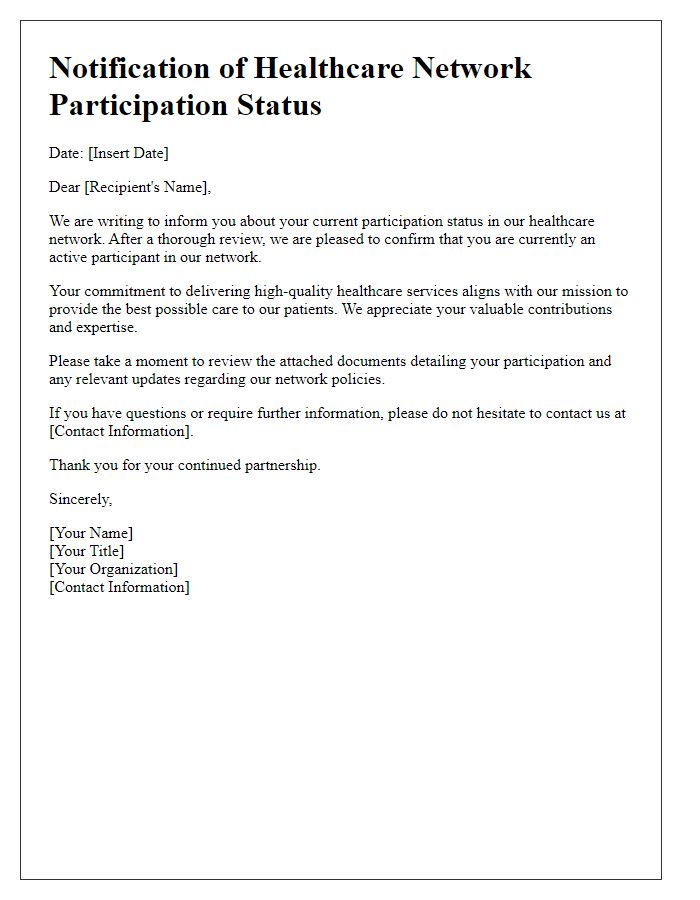

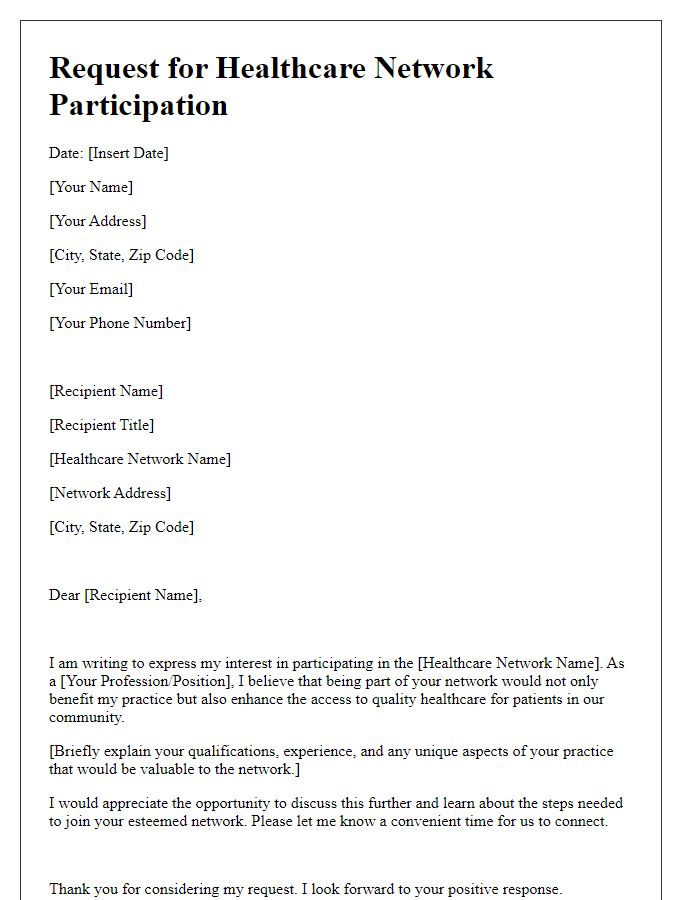
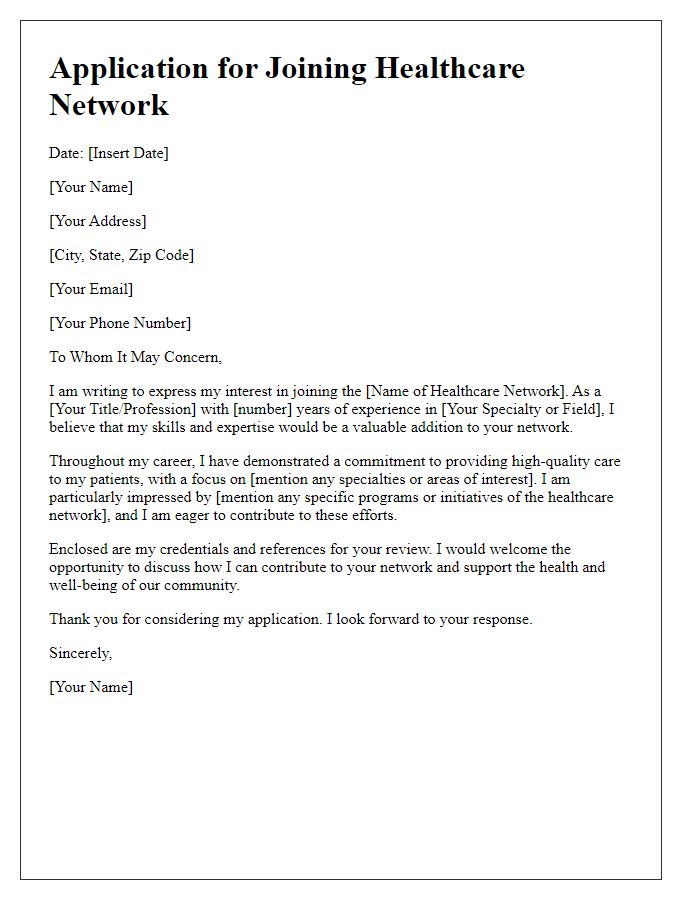
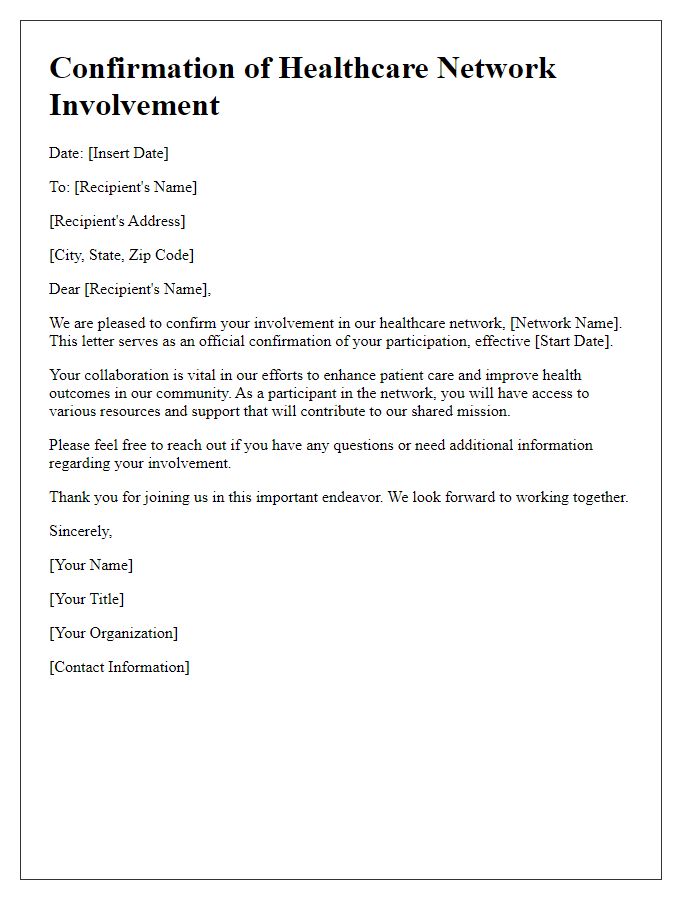
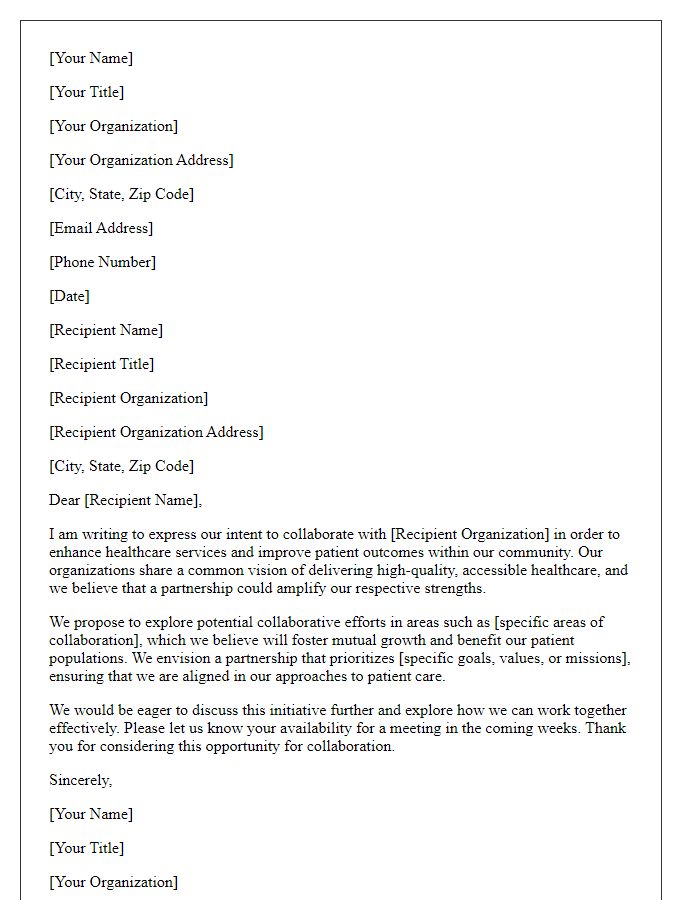
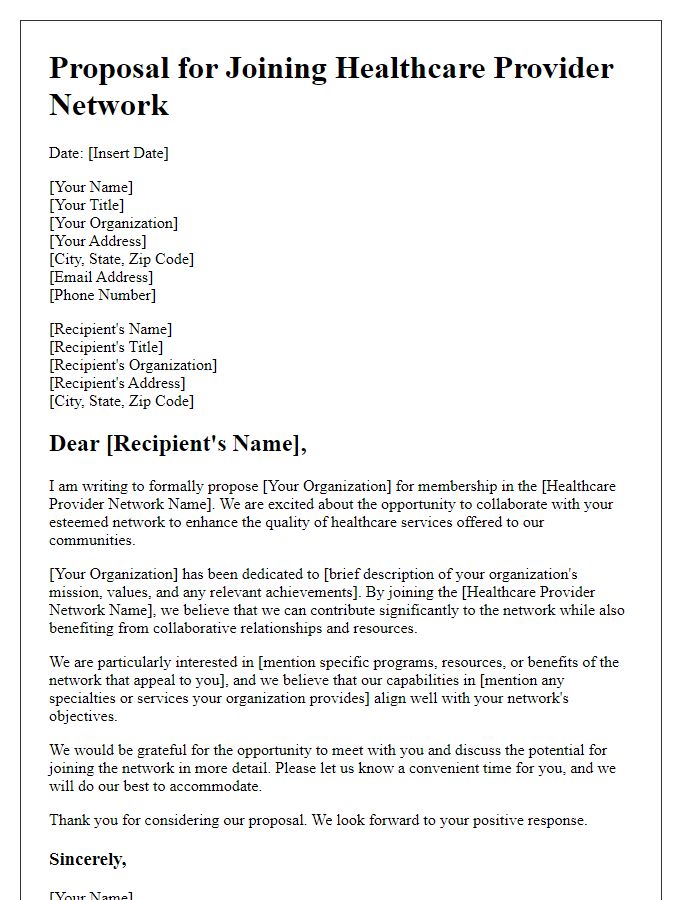
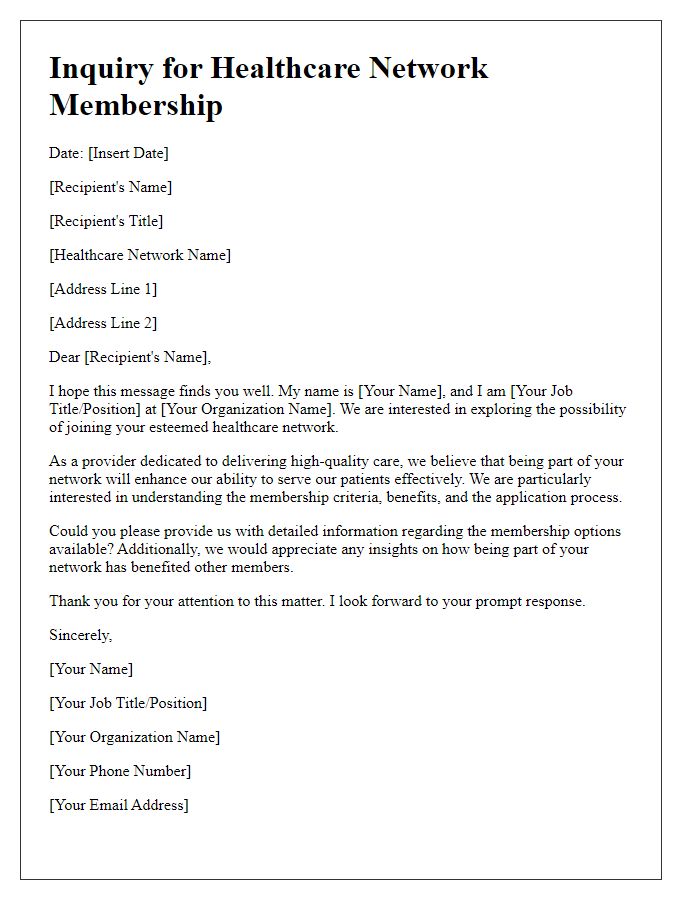
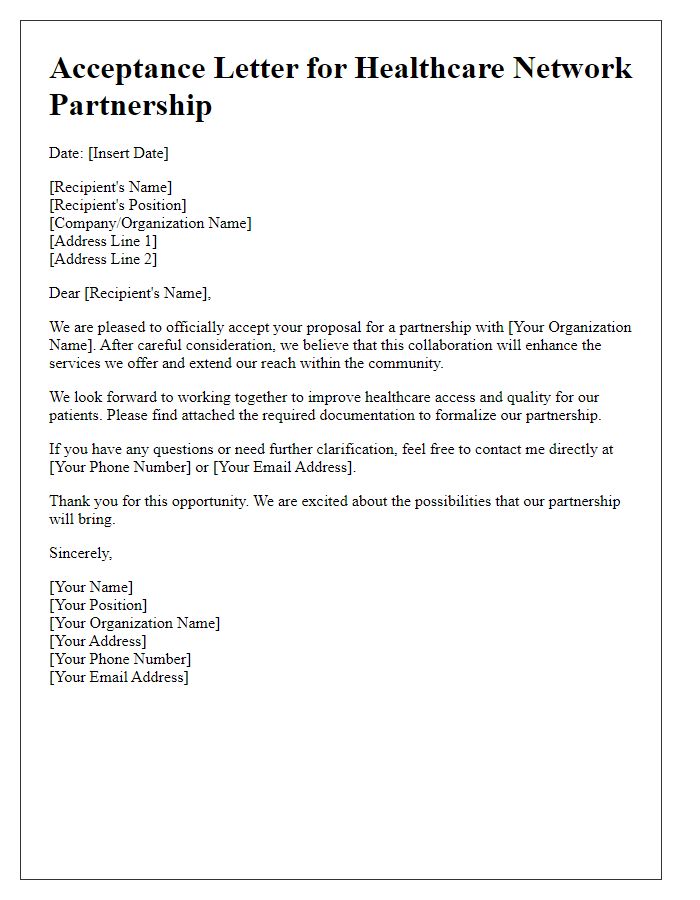
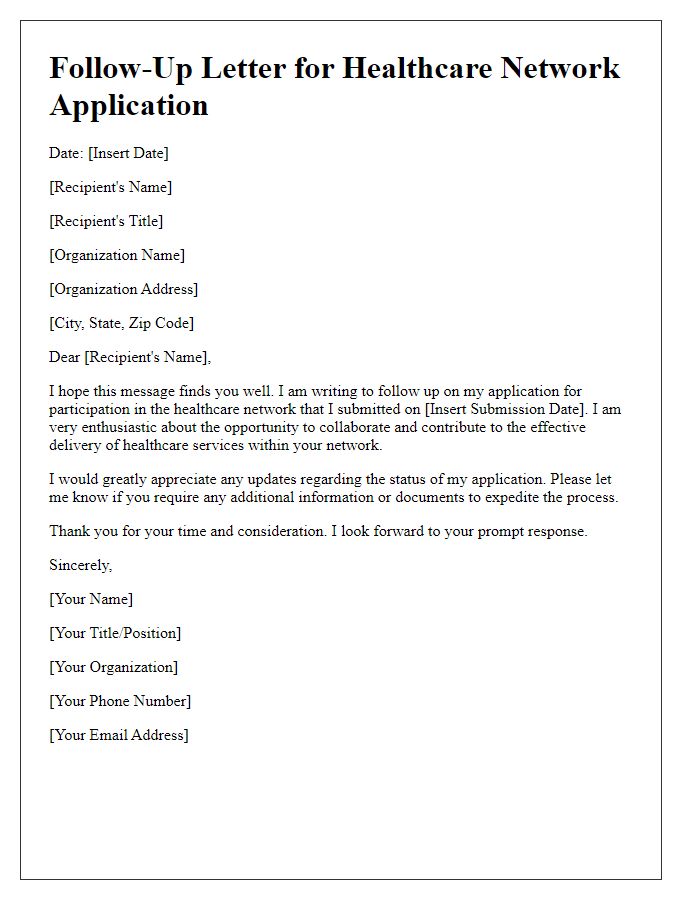
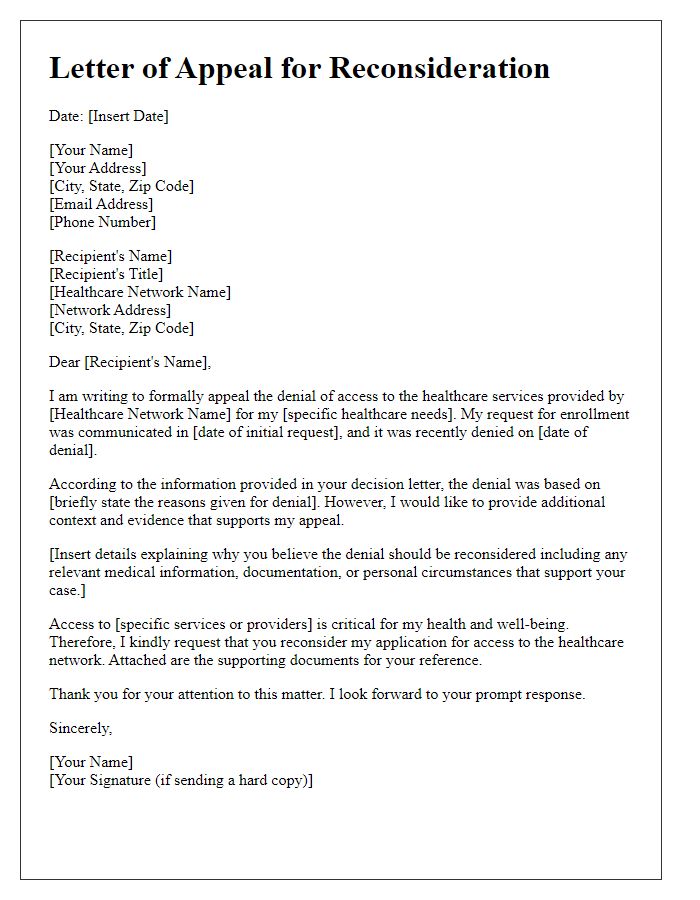


Comments